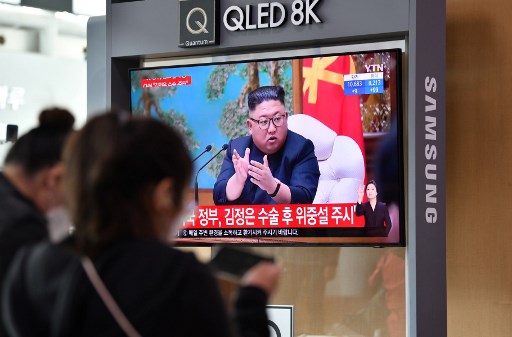
403
Sorry!!
Error! We're sorry, but the page you were looking for doesn't exist.
N-Korea issues warning to announce war
(MENAFN) In a significant escalation of tensions on the Korean Peninsula, North Korea announced on Saturday that it had discovered fragments of a crashed South Korean military drone, threatening retaliatory measures against its southern neighbor. The state-run news agency KCNA reported that the drone was allegedly involved in dropping leaflets over Pyongyang, similar to prior incidents earlier this month when drones were observed dispersing what North Korea described as "political propaganda and slander."
The KCNA issued a stark warning, stating that any confirmed violation of North Korean territory—be it land, air, or sea—by South Korean military assets would be considered a serious military provocation. Such an incident would be interpreted as a declaration of war, prompting an immediate retaliatory response from the North. This rhetoric reflects a pattern of escalating hostility, as Kim Yo-jong, the sister of North Korean leader Kim Jong-un and a prominent government official, claimed earlier in the week that there was "clear evidence" of South Korea infringing upon North Korea's airspace.
In response, South Korea has remained tight-lipped about the situation, with military officials, including Joint Chiefs of Staff spokesman Colonel Lee Sung-jun, stating that the issue should be clarified by North Korea. This lack of confirmation adds to the uncertainty surrounding the incident and further complicates the already tense relations between the two Koreas.
Recent months have seen North Korea ramping up its hostile rhetoric towards South Korea, accusing it of provocations and engaging in aggressive actions. Notably, this week North Korean forces destroyed sections of roads leading to South Korea, pledging to create a “complete separation” between the two nations and to transform the border area into what they referred to as "an eternal fortress."
In a notable shift in policy, Kim Jong-un has proposed moving away from the long-standing goal of reunification, labeling South Korea as a “principal enemy.” This change reflects a broader strategy of asserting North Korea’s sovereignty and military readiness in the face of perceived threats from the South and its allies.
As the situation continues to evolve, the potential for further escalation looms large, highlighting the fragile state of peace on the Korean Peninsula and raising concerns over the possibility of renewed conflict. The international community watches closely as both Koreas navigate this increasingly volatile landscape.
The KCNA issued a stark warning, stating that any confirmed violation of North Korean territory—be it land, air, or sea—by South Korean military assets would be considered a serious military provocation. Such an incident would be interpreted as a declaration of war, prompting an immediate retaliatory response from the North. This rhetoric reflects a pattern of escalating hostility, as Kim Yo-jong, the sister of North Korean leader Kim Jong-un and a prominent government official, claimed earlier in the week that there was "clear evidence" of South Korea infringing upon North Korea's airspace.
In response, South Korea has remained tight-lipped about the situation, with military officials, including Joint Chiefs of Staff spokesman Colonel Lee Sung-jun, stating that the issue should be clarified by North Korea. This lack of confirmation adds to the uncertainty surrounding the incident and further complicates the already tense relations between the two Koreas.
Recent months have seen North Korea ramping up its hostile rhetoric towards South Korea, accusing it of provocations and engaging in aggressive actions. Notably, this week North Korean forces destroyed sections of roads leading to South Korea, pledging to create a “complete separation” between the two nations and to transform the border area into what they referred to as "an eternal fortress."
In a notable shift in policy, Kim Jong-un has proposed moving away from the long-standing goal of reunification, labeling South Korea as a “principal enemy.” This change reflects a broader strategy of asserting North Korea’s sovereignty and military readiness in the face of perceived threats from the South and its allies.
As the situation continues to evolve, the potential for further escalation looms large, highlighting the fragile state of peace on the Korean Peninsula and raising concerns over the possibility of renewed conflict. The international community watches closely as both Koreas navigate this increasingly volatile landscape.

Legal Disclaimer:
MENAFN provides the
information “as is” without warranty of any kind. We do not accept
any responsibility or liability for the accuracy, content, images,
videos, licenses, completeness, legality, or reliability of the information
contained in this article. If you have any complaints or copyright
issues related to this article, kindly contact the provider above.


















Comments
No comment